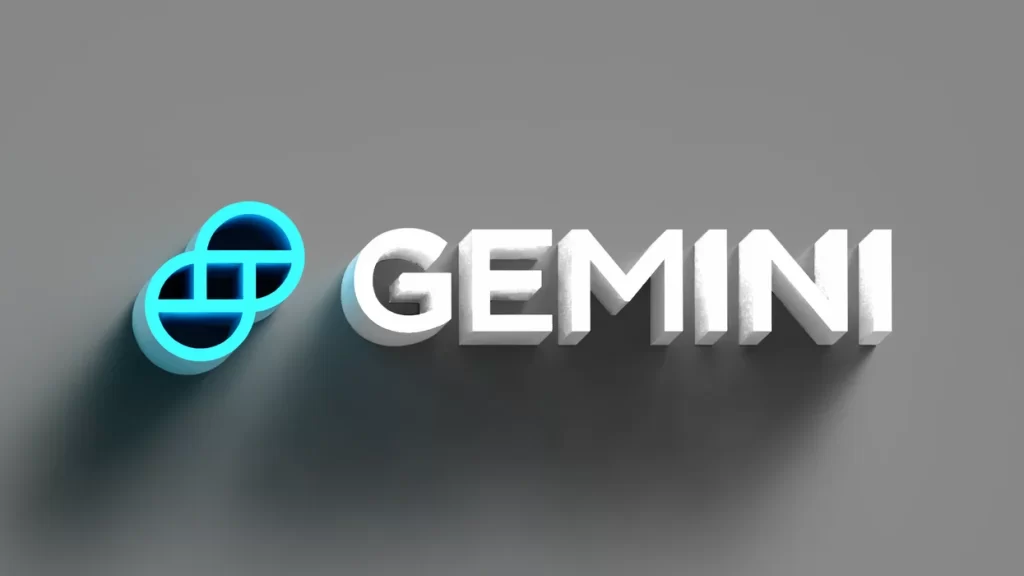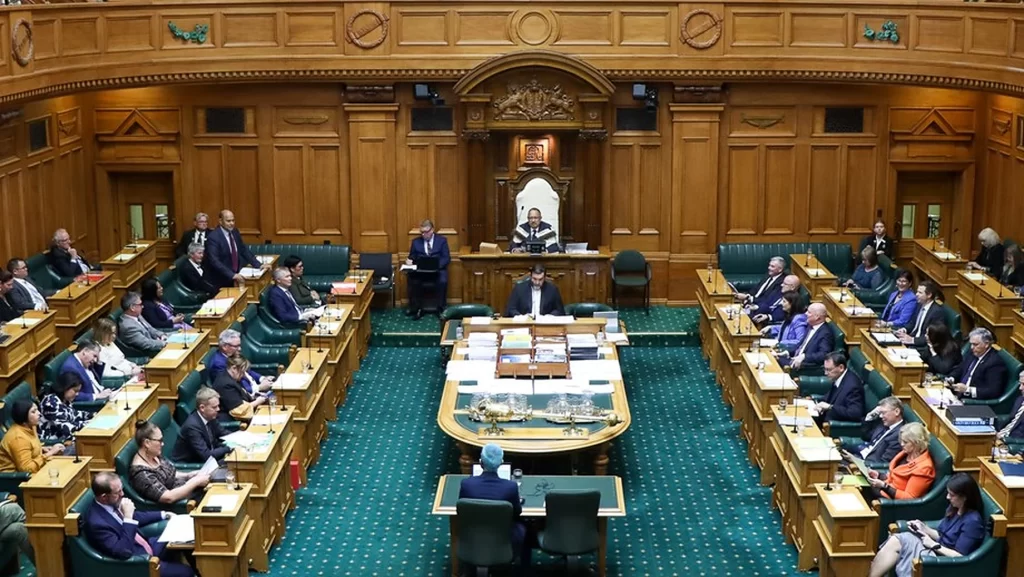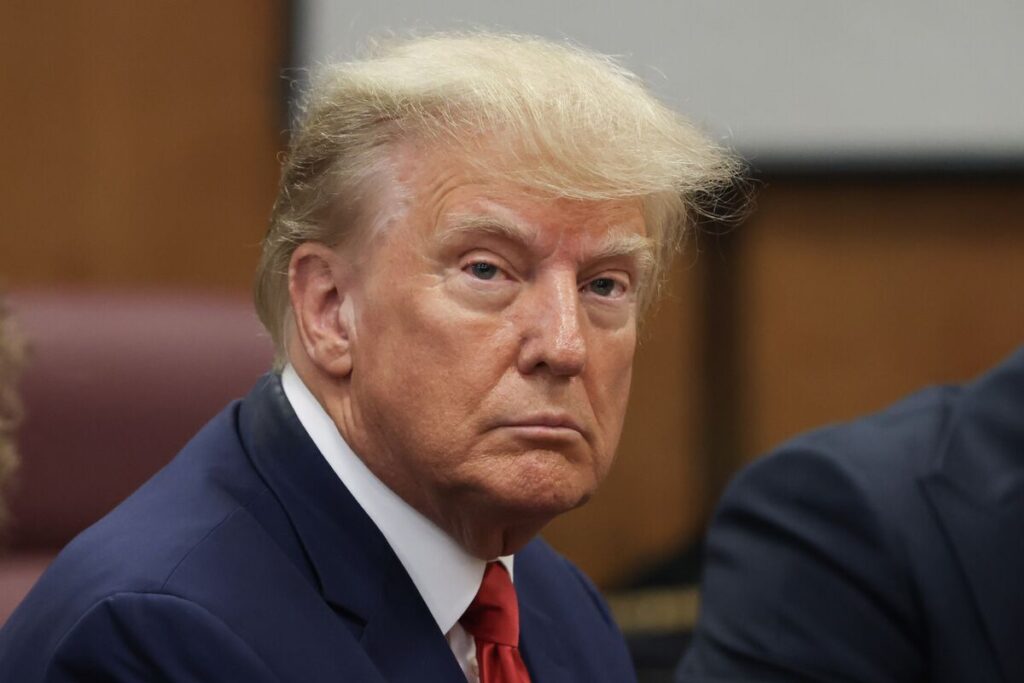The United States Securities and Exchange Commission (SEC) is reportedly poised to greenlight a series of applications for Ether futures exchange-traded funds (ETFs) concurrently, sources familiar with the matter have informed The Wall Street Journal.
Numerous investment firms have inundated the regulator with applications since July, encompassing proposals that combine futures strategies for both Bitcoin (BTC) and Ether (ETH).
Unlike in 2021, when similar applications were met with directives to withdraw, the SEC has refrained from instructing firms to retract their current submissions.
This divergence suggests that the regulatory body is unlikely to impede the imminent launch of these funds, as insiders have shared with WSJ.
A trove of at least 16 applications for Ether or Bitcoin-Ether futures ETFs is currently awaiting regulatory clearance.
Ether, the indigenous token of the Ethereum blockchain, serves as the medium for peer-to-peer transactions within the decentralized network.
A cryptocurrency futures ETF shadows the progress of cryptocurrency futures contracts.
For instance, rather than directly investing in Bitcoin or Ethereum, a cryptocurrency futures ETF invests in futures contracts pegged to the valuation of these digital assets.
Recent developments reveal an ongoing scramble to obtain approval for crypto futures.
Valkyrie, an asset management entity, is emblematic of this trend, having recently filed for an Ether futures ETF and a preexisting application integrating a Bitcoin-Ether futures approach.
As the frontrunner in this competitive endeavor, Valkyrie stands poised to introduce its BTC-ETH ETF to the market as early as October.
READ MORE:Tether Discontinues Bitcoin Omni Layer Version Due to Waning Interest
Within the ETF sector, pioneering status carries significant weight.
Data from Morningstar, as cited by WSJ, accentuates this point, illustrating that the inaugural futures Bitcoin ETF, sanctioned by ProShares in October 2021, has amassed $1 billion in assets under management.
In a similar vein, Valkyrie’s analogous product, launched shortly thereafter, has garnered nearly $28 million in assets under management.
Meanwhile, the crypto industry remains on tenterhooks, awaiting the SEC’s verdict on a prospective spot Bitcoin ETF in the United States.
Notable industry giants like Fidelity and BlackRock are among the hopefuls.
The application timeline stipulates that the SEC has until January to render a final decision that will reverberate across the financial landscape.
Other Stories:
Former US President Donald Trump’s Ethereum Wallet Surges to $2.8 Million
Shiba Inu’s Shibarium Network Restarts Block Production After Temporary Pause
Bitcoin Hovers Near 2-Month Lows Amidst Extensive Liquidations and Market Uncertainty
Elon Musk, previously associated with Twitter and now chairman and chief technology officer of X, has expressed admiration for Vivek Ramaswamy, an emerging figure in the realm of United States Republican presidential candidates.
In response to a segment of Vivek Ramaswamy’s interview on the Tucker Carlson’s Tucker on Twitter podcast, Musk took to Twitter to commend him, highlighting that Ramaswamy holds the distinction of being the youngest-ever Republican presidential candidate.
Musk also emphasized Ramaswamy’s potential, labeling him as a highly promising candidate.
Ramaswamy is renowned for his forthright viewpoints on digital finance and cryptocurrencies. He has been actively advocating for a more robust crypto ecosystem within the United States.
This commitment was evident at the Bitcoin 2023 conference held in Miami, where he announced that his presidential campaign would be open to receiving contributions in Bitcoin.
This move marked Ramaswamy as the second contender in the 2024 U.S. election race to embrace BTC donations.
During the conference, Ramaswamy unveiled a QR code, directing participants to a donation portal that offered various channels for contributions.
READ MORE: Bitcoin Hovers Near 2-Month Lows Amidst Extensive Liquidations and Market Uncertainty
Supporters who made donations within the stipulated limit of $6,600 were offered an exclusive nonfungible token, a distinctive feature of his campaign strategy.
Ramaswamy’s approach echoes that of Robert F. Kennedy Jr., who became the pioneer U.S. presidential aspirant to embrace Bitcoin donations, underscoring the escalating importance of cryptocurrencies in shaping the future financial landscape.
The growing popularity of Ramaswamy has led to his association with fellow Republican Ron DeSantis, the Bitcoin-friendly Governor of Florida, creating an environment of shared interests and goals.
However, Ramaswamy’s foray into the realm of politics is not without its challenges.
Presently, he confronts two legal cases brought forward by former employees of Strive Asset Management, a company he co-founded.
These former employees allege that they were coerced into violating securities regulations during their tenure at the firm.
In summation, the acknowledgment from influential figures like Elon Musk and Ramaswamy’s bold stance on cryptocurrency contributions underscore the impact of this emerging candidate on the evolving political and financial landscape.
Yet, his journey into politics is accompanied by legal hurdles, which add a layer of complexity to his political trajectory.
Other Stories:
Tether Discontinues Bitcoin Omni Layer Version Due to Waning Interest
Former US President Donald Trump’s Ethereum Wallet Surges to $2.8 Million
Shiba Inu’s Shibarium Network Restarts Block Production After Temporary Pause
Cryptocurrency exchange Gemini has taken a step in its bid to counter the lawsuit brought against it by the United States Securities and Exchange Commission (SEC), by submitting a reply brief.
The lawsuit revolves around allegations that Gemini Earn, a service enabling customers to lend cryptocurrencies such as Bitcoin to Genesis, violated securities regulations by offering unregistered securities.
Gemini’s recent court documents, dated August 18 and filed in the U.S. District Court for the Southern District of New York, strongly contest the SEC’s claims.
The exchange asserts that the SEC has failed to make a clear and solid case, indicating that “Section 5 of the securities act is not hard to understand.”
Gemini contends that the SEC’s inability to precisely define the security in question underscores the fragility of its position.
The exchange further posits that the court should not wade through the convoluted analyses presented by the SEC.
Instead, it suggests that the agency should ask direct and uncomplicated questions to ascertain whether the alleged breach qualifies as a security.
Key queries include the timing of the supposed security sale, the identity of the buyer and seller, as well as the offered or charged price.
Gemini argues that the SEC’s responsibility lies in pinpointing the unregistered security before identifying the sale or offer associated with it.
According to Gemini, the SEC has failed to fulfill this basic requirement.
The exchange’s filing asserts that the SEC’s opposition “avoids the question before the court.”
READ MORE: Tether Discontinues Bitcoin Omni Layer Version Due to Waning Interest
In earlier court filings on May 27, Gemini contended that transactions conducted within the Gemini Earn program were akin to loans.
The exchange requested the SEC to dismiss the complaint.
In a statement made on August 19, Jack Baugham, a founding partner of JFB Legal representing Gemini, highlighted the changing stance of the SEC as the lawsuit progresses.
Baugham expressed that the SEC’s inability to determine the nature of the security being referred to muddles their argument.
The regulator’s contradictory positions, such as labeling the Loan Agreement a security while simultaneously claiming the entire Gemini Earn program to be a security, are deemed absurd by Baugham.
In summary, Gemini’s reply brief contests the SEC’s lawsuit, emphasizing that the agency has not clearly established its case regarding the alleged breach of securities regulations by the Gemini Earn service.
The exchange argues that the SEC’s confusion about the nature of the security and its inconsistent claims undermine the legitimacy of the lawsuit.
Other Stories:
Bitcoin Hovers Near 2-Month Lows Amidst Extensive Liquidations and Market Uncertainty
Shiba Inu’s Shibarium Network Restarts Block Production After Temporary Pause
Former US President Donald Trump’s Ethereum Wallet Surges to $2.8 Million
A recent CoinGecko report, published on August 17, has shed light on the substantial global disparities in household electricity expenses associated with individual Bitcoin (BTC) mining.
The report highlighted a remarkable contrast between Italy and Lebanon, where the cost of producing a single Bitcoin differs significantly.
According to the findings, mining one Bitcoin in Italy comes at a staggering cost of $208,560.
This is in stark contrast to Lebanon, where the expense is approximately 783 times lower, allowing miners there to generate a Bitcoin for just $266.
The study underscored that only 65 countries present a profitable landscape for solo Bitcoin miners, primarily based on household electricity costs.
Within this group, Asia accounts for 34 countries, while Europe contributes a mere five.
However, miners operating solo face a challenge as the global average for household electricity costs sits at $46,291.24 for mining one Bitcoin.
This figure is notably 35% higher than the average daily price of one Bitcoin in July 2023, which was $30,090.08.
The report identified Italy as the most expensive country for household Bitcoin mining, with a cost per Bitcoin of $208,560.
Austria followed at $184,352, and Belgium at $172,382.
READ MORE: Tether Discontinues Bitcoin Omni Layer Version Due to Waning Interest
Conversely, Lebanon’s affordability shines through in its household electricity rates, allowing for a strikingly low cost of $266 to mine one Bitcoin.
This dramatic variance underlines the immense difference in operational costs between countries.
Iran comes next on the list, with a production cost of $532 per Bitcoin.
Despite legalizing Bitcoin mining in 2019, the country has intermittently prohibited mining due to concerns over energy grid strain during winter.
Binance CEO Changpeng “CZ” Zhao engaged with the report’s data on social media, questioning why individuals in countries with lower electricity costs wouldn’t engage in Bitcoin mining.
However, he acknowledged the potential complexities involved and suggested that feasibility and logistics might not have been fully considered in the report.
CZ also pointed out that some of these low-cost electricity countries experience shortages, often necessitating power reductions in heavy industries during peak hours or the summer months.
This context reveals that while electricity costs are a significant factor, other variables also play into the viability of Bitcoin mining operations across different nations.
Other Stories:
Bitcoin Hovers Near 2-Month Lows Amidst Extensive Liquidations and Market Uncertainty
Shiba Inu’s Shibarium Network Restarts Block Production After Temporary Pause
Former US President Donald Trump’s Ethereum Wallet Surges to $2.8 Million
In the midst of escalating calls for cryptocurrency regulation across the globe and the ongoing debate surrounding enforcement-based approaches, a recently issued report to the New Zealand Parliament advocates for a measured and adaptable strategy.
Initiated by the Finance and Expenditure Committee of the New Zealand House of Representatives in 2021, this comprehensive report titled “Exploration of Cryptocurrency: Current State, Future Prospects, and Potential Risks” emphasizes the importance of a gradual and flexible regulatory stance.
Jointly authored by a legal expert from MinterEllisonRuddWatts law firm and an associate professor of commercial law at the University of Auckland, this 99-page document meticulously reviewed public opinions gathered earlier and offers 22 prudent recommendations.
Overall, the report displayed a positive perspective on blockchain technology and digital assets.
While acknowledging persistent challenges such as price volatility, environmental concerns, and illicit activities, the report discouraged the imposition of overly stringent limitations, contending that such restrictions could impede the viability and competitive edge of businesses that increasingly embrace cryptocurrency payments.
The report also cautioned against a preemptive regulatory push:
“Developing and instituting a comprehensive regulatory framework would be an intricate endeavor. […] Based on our assessment, regulatory bodies lack the necessary resources and infrastructure for effective management.”
“Instead, we propose that issues be tackled as they surface.
“Our suggestion is for the Government and regulators to establish consistent and coherent guidelines pertaining to the treatment of digital assets within existing legal frameworks,” the report emphasized.
It further advised local legislators to monitor regulatory advancements in the United States, United Kingdom, and Australia before devising domestic policies.
Certain regulatory interventions are deemed essential.
READ MORE: Coinbase’s ‘Stand with Crypto Alliance’ Gains Momentum Amidst Lawmaker Engagement Push
The report urges the Financial Markets Authority (FMA) to introduce a novel investment category tailored for digital assets, incorporating a sandbox provision, alongside a distinct category for personal property.
Furthermore, the report advocates for the FMA to spearhead a dedicated subcommittee within the Council of Financial Regulators, tasked with furnishing expert counsel and a synchronized approach to address industry-related challenges.
Concurrently, a more comprehensive task force, encompassing representatives from pertinent government entities including law enforcement, tax authorities, and the central bank, should be convened to engage with the digital asset sector.
The report concluded by underscoring the need to sustain research into central bank digital currencies.
In a landscape where the cacophony for cryptocurrency regulations is crescendoing, the New Zealand report stands out as a call for prudent and adaptable action, promoting a harmonious equilibrium between innovation and oversight.
Other Stories:
Silvergate Bank Undergoes Executive Shake-Up Amid Crypto Transition and Legal Challenges
Stellar Development Foundation Invests in MoneyGram International
Former US President Donald Trump’s Ethereum Wallet Surges to $2.8 Million
In a recent update on X (formerly Twitter), David Schwartz, Chief Technology Officer of Ripple Labs, shed light on a recent development concerning the United States Securities and Exchange Commission’s (SEC) appeal.
Schwartz indicated that the SEC’s appeal is predicated on their interpretation that the ongoing legal case has not yet reached its conclusion.
This perspective grants parties involved the opportunity to appeal subsequent to the finalization of the case.
This procedural approach aims to streamline legal proceedings and prevent ongoing disruptions to the core case due to multiple appeals on minor rulings.
After Judge Analisa Torres’ ruling on July 13, which declared that the sale of XRP on digital asset exchanges does not qualify it as a security, the SEC has taken the step to file an appeal.
While this move by the SEC was prompted by the favorable outcome for Ripple, its focus centers on an unexpected twist within the legal proceedings.
Schwartz affirmed that consolidating appeals is crucial to streamline the process, as separate appeals are likely to protract the legal proceedings further.
READ MORE: Bitcoin Hovers Near 2-Month Lows Amidst Extensive Liquidations and Market Uncertainty
However, he clarified a rule applicable to specific scenarios.
The SEC contends that the unique circumstances in this instance warrant a different approach.
The SEC proposes a suspension of the process until the appeal is resolved, a proposition that Ripple does not endorse.
Ripple maintains that, even if the SEC is entitled to appeal, the primary lawsuit should continue while the appeal process unfolds.
This approach aligns with the notion of allowing the trial to proceed and addressing appeals diligently once all other matters are settled.
Schwartz provided additional insight to counter rumors within the Bitcoin community concerning the SEC’s potential intent to appeal Torres’ decision to higher courts.
The ultimate resolution of the legal dispute between Ripple Labs and the SEC may be influenced by the court’s decision on whether to grant the appeal request.
Other Stories:
Tether Discontinues Bitcoin Omni Layer Version Due to Waning Interest
Former US President Donald Trump’s Ethereum Wallet Surges to $2.8 Million
Shiba Inu’s Shibarium Network Restarts Block Production After Temporary Pause
IBM Automation’s Chief Technology Officer, Jerry Cuomo, recently penned a blog post that delves into the potential risks tied to deploying ChatGPT for enterprise purposes.
Cuomo highlights crucial areas of concern that businesses ought to ponder before integrating ChatGPT into their operations.
Despite these concerns, Cuomo ultimately asserts that ChatGPT is suitable solely for non-sensitive data, emphasizing that once information is fed into ChatGPT, its usage becomes opaque and uncontrollable.
Cuomo underscores the inadvertent likelihood of data leakage, posing a legal predicament for companies if confidential customer, partner, or client data seeps into ChatGPT’s training dataset and subsequently becomes public.
Intellectual property concerns also loom large, and Cuomo warns against the inadvertent violation of open-source agreements due to such data leakage.
In line with the IBM blog post, Cuomo states that if proprietary third-party or internal organizational data is inputted into ChatGPT, it morphs into a part of the chatbot’s data framework and could potentially be shared with others seeking relevant insights.
Following the article’s publication, Cointelegraph sought input from OpenAI on the matter.
READ MORE: Silvergate Bank Undergoes Executive Shake-Up Amid Crypto Transition and Legal Challenges
A public relations representative responded via email, asserting that the data would not be shared with other users posing relevant queries.
The representative further directed attention to the existing documentation elucidating ChatGPT’s privacy safeguards, including an explanation of how web users can deactivate their chat history.
OpenAI’s ChatGPT API, as disclosed, has data sharing deactivated by default.
However, critics have voiced concerns that conversations on the web-based iteration are automatically archived.
Users must actively opt out of saving their conversations, despite the utility of the feature in picking up where discussions left off, and the utilization of their data for model training.
Presently, no alternative exists for conserving conversations without consenting to data sharing.
In summary, IBM Automation’s CTO, Jerry Cuomo, has highlighted numerous vulnerabilities inherent in deploying ChatGPT for enterprise applications.
These vulnerabilities encompass inadvertent data leakage, potential legal repercussions, and intellectual property risks.
OpenAI’s response underscores the commitment to data protection, but critics have pointed out discrepancies between the web version’s conversation saving feature and the ability to opt out of data sharing for training.
Other Stories:
Former US President Donald Trump’s Ethereum Wallet Surges to $2.8 Million
Stellar Development Foundation Invests in MoneyGram International
Coinbase’s ‘Stand with Crypto Alliance’ Gains Momentum Amidst Lawmaker Engagement Push
Amidst the ongoing bear market dampening venture capital investments in the cryptocurrency sector, innovative financing avenues like grants have gained prominence as they foster community support and nurture established projects’ growth.
Presently, approximately 40 crypto initiatives, as stated by Blockchain Grants, are extending grants to developers focused on Web3 solutions.
Contrarily, data from Cointelegraph Research underscores that the crypto venture capital space has suffered due to the market downturn, causing a substantial 30% decrease in capital infusion into Web3 projects over the past year.
Grants and venture capital diverge in purpose and prerequisites.
While grants align with particular goals and values, venture capital centers on startups with exponential growth potential and financial profitability.
However, the efficacy of grants rests on reinvesting funds into the project, according to Naveen Agnihotri, CEO of Cumberland Labs.
Agnihotri emphasizes that grants can be a boon for burgeoning crypto projects if funds are channeled back into project development.
Alternatively, venture capital, he notes, can enable founders to bootstrap their projects, given the mutually incentivized engagement between parties.
To sustain accountability and innovation, the SingularityNET team has revamped its Deep Funding grant initiative.
This updated program, now in its third round, will evaluate teams based on milestones, deliverables, and peer revisions.
Proposals are open until September 3 across five funding pools, with over $1.5 million earmarked for AI-related projects.
READ MORE: Former US President Donald Trump’s Ethereum Wallet Surges to $2.8 Million
According to Rafael Presa, operations manager of Deep Funding, grant programs are pivotal in shaping the next phase of crypto industry evolution by supporting innovative ideas, research, and solutions.
Since its inception in 2022, the Deep Funding program has nurtured 28 artificial intelligence (AI) projects through decentralized voting within the SingularityNET ecosystem.
Furthering this trend, the Interledger Foundation employs its grant program to bolster initiatives targeting payment networks for unbanked communities worldwide.
Briana Marbury, CEO of the Interledger Foundation, highlights that grants can alleviate financial constraints faced by entrepreneurs and innovators, enabling ideas that might otherwise remain unrealized.
The program is currently accepting applications, with grants exceeding $100,000 in this round and a deadline of November 21.
Applying for grants necessitates a deep understanding of grantor objectives and priorities, demonstrating a sincere commitment to the program’s essence.
Engaging with the community, soliciting feedback, and refining proposals showcase dedication to collaboration and improvement, according to Presa.
In these challenging market conditions, Naveen Agnihotri advises projects to focus on addressing genuine issues when presenting grant proposals.
He encourages taking advantage of the bear market’s contemplative environment to devise significant ideas and craft comprehensive grant proposals, highlighting that even in lean times, quality ideas attract funding.
In summation, while the bear market impacts venture capital, the rise of grant programs offers a lifeline for crypto projects, nurturing innovation, collaboration, and impactful solutions.
Other Stories:
Coinbase’s ‘Stand with Crypto Alliance’ Gains Momentum Amidst Lawmaker Engagement Push
Silvergate Bank Undergoes Executive Shake-Up Amid Crypto Transition and Legal Challenges
Stellar Development Foundation Invests in MoneyGram International
Former US President Donald Trump’s Ethereum wallet has been revealed to contain more than $2.8 million, according to a newly disclosed financial statement.
Released on August 14 by the nonprofit watchdog group Citizens for Responsibility and Ethics in Washington, the statement exposes that Trump accrued over $4.8 million through licensing fees linked to nonfungible token (NFT) collections that utilized his image.
His crypto-related endeavors, in total, brought in approximately $7.6 million.
This sum stowed in Trump’s Ethereum wallet significantly surpasses the previously stated figure of $250,000 to $500,000, which was disclosed in an April 14 filing.
The disclosure comes as Trump, after his defeat by President Joe Biden in 2020, is aiming for a White House comeback in the 2024 election.
However, this financial revelation is accompanied by a shadow cast by Trump’s indictment in Georgia on August 14. The charges revolve around allegations of Trump and his supporters plotting to disrupt the 2020 presidential election.
READ MORE: Voyager Digital’s Massive Token Transfers Spark Speculation of Impending Sell-Off
Despite his financial successes in the crypto sphere, Trump’s historical skepticism towards digital currencies lingers.
He has questioned the legitimacy of cryptocurrencies, labeling them as potentially “fake” and foreseeing a “disaster waiting to happen.”
Notably, he has expressed distaste for Bitcoin, deeming it a “scam” and expressing his concern about its competition with the US dollar.
In essence, Trump’s Ethereum wallet now holds over $2.8 million, a sum that dwarfs previous estimates.
This disclosure coincides with his aspiration to reclaim the presidency in 2024, despite the backdrop of legal challenges.
Amid his financial accomplishments within the cryptocurrency realm, his enduring skepticism towards digital currencies remains palpable, particularly in his criticisms of Bitcoin’s viability and potential impact on traditional fiat currencies.
Other Stories:
Pro-Bitcoin Politician Surges Ahead in Argentine Presidential Primaries
Former FTX CEO Sam Bankman-Fried Detained in Notorious Brooklyn Jail
Zunami Protocol Issues Warning Amidst Attack on Stablecoin Pools on Curve Finance
Uzbekistan’s financial landscape is undergoing a digital transformation as two prominent private banks, Kapital Bank and Ravnaq Bank, secure the green light from the National Agency for Perspective Projects (NAPP) to participate in the realm of cryptocurrency regulation through the digital sandbox initiative.
A significant development unveiled on August 14th, NAPP’s approval was extended to Ravnaq Bank, thus welcoming them to partake in the pilot program.
This followed the Agency’s announcement in May 2023 confirming Kapital Bank’s involvement in issuing its own crypto card.
Branded as “UzNEX,” the forthcoming Uzbeki crypto card is set to revolutionize the financial sector by synergizing traditional banking services with access to a crypto exchange and an automated exchange mechanism.
Bolstering this innovative venture is a partnership with Mastercard, a global frontrunner in payment systems.
Both Kapital Bank and Ravnaq Bank are diligently working towards a shared goal, aiming to roll out their crypto card offerings to the general public by the close of December 2023.
Notably, they stand as two of the esteemed trio of registered participants within the nation’s digital sandbox experiment.
In a pivotal move commencing from 2023, Uzbekistan’s administration has mandated that only licensed cryptocurrency entities are permitted to offer crypto-related services.
READ MORE: Voyager Digital’s Massive Token Transfers Spark Speculation of Impending Sell-Off
This regulatory pivot comes on the heels of the issuance of the inaugural licenses to local crypto enterprises in November 2022.
Preceding this, the country had barred access to several international crypto exchanges of repute, including Binance, FTX, and Huobi, citing allegations of unauthorized activities.
The nation’s meticulous approach to cryptocurrency oversight was instigated by a presidential decree in 2022 that heralded the inception of NAPP, entrusted with the responsibility of supervising the burgeoning digital assets sector.
Furthermore, the decree not only set the wheels in motion for regulatory clarity but also intricately delineated the legal framework encompassing cryptocurrency mining endeavors within the confines of Uzbekistan.
As these private banks join hands with cutting-edge technology and renowned financial giants, they are poised to shape a pioneering era in Uzbekistan’s financial landscape.
With their sights set on the imminent launch of the UzNEX crypto card and the overarching vision of advancing secure and regulated cryptocurrency services, these institutions are indelibly etching their mark in the digital evolution of finance.
Other Stories:
Zunami Protocol Issues Warning Amidst Attack on Stablecoin Pools on Curve Finance
Former FTX CEO Sam Bankman-Fried Detained in Notorious Brooklyn Jail
Pro-Bitcoin Politician Surges Ahead in Argentine Presidential Primaries












